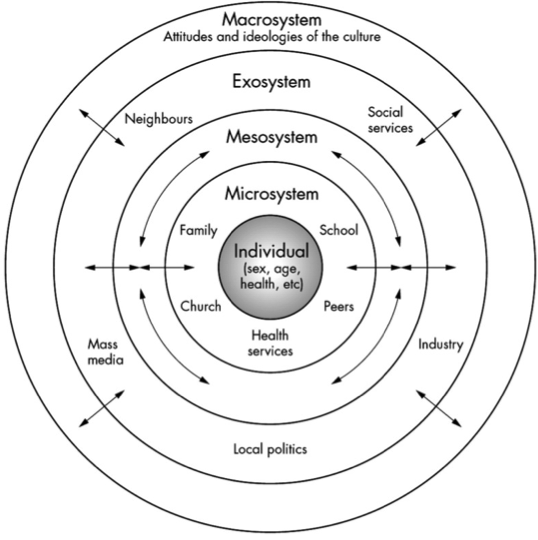NOTE: Read Part 1 Here
Over the past 20 years, through my experience of teaching missiology, mentoring young people and coaching university students in educational and developmental theory, I have become acquainted with the work of some of the more notable post-modern, socio-cultural thinkers of the past 50 years. I have begun to see a connection between my understanding of these thinkers and my approach to theology. The result, I hope, is that I have arrived at a more honest approach to theology than that which I have taken in the past. I used to try to impose on those around me a particular theological viewpoint on issues simply because I had the depth of research and highly-regarded expositions of erudite theologians to support my pronouncements. I owe a debt to Foucault for prompting me to acknowledge that my theology is co-constructed through the interplay of three factors – environment, noesis, and experiences. My theology is not primarily the result of some foolproof, irrefutable logic but has a far more complex, rich and challenging aetiology.
The work of Uri Bronfenbrenner on the different, concentric systems of the environment in which we exist as individuals, is based on the iconic Russian wooden doll that contains three or four exact replicas of diminishing size of the largest outside doll. Using this analogy, Bronfenbrenner describes the ecology of our lives in this diagram.

This has provided a helpful explanation of how my family configuration (past and present), my church experience, my education, my work, and the community in which I have grown up and live in now (local, cultural, religious, national, global and historical) all contribute to my theological perspective on different issues.
Then, there is a helpful term, “noesis”, that I came across while I was thinking through my theological approach. Noesis is the psychological result of a combination of perception, learning and reasoning. When it comes to theology, this is seen in our view of the bible (is it literal, contextual, or figurative – or a combination of some or all of these selectively or entirely?); our view of people (are we inherently depraved or inherently noble?); our view of the world (is it essentially good or essentially evil?). My noesis (formed largely through extensive theological study, research, teaching and dialogue) has a profound impact on my theological approach.
Related: Why My Heart is Torn Between Russian Orthodoxy and Pussy Riot
For example, when it comes to the creation/evolution issue, our theological view on the origins of life very strongly reflects our noesis. If we believe that the Bible is literal and that people are inherently depraved and the world is essentially evil, then we will be more likely to see Genesis, chapters one to eleven, as a precise description of the origins of life through the miraculous acts of the creator God. This fits with our literal view of the Bible – the text means exactly what it says. It explains the depravity of humanity – a perfect creation was corrupted by wilful human disobedience and all people since then are born in sin. Moreover, an essentially good world was handed over to evil by this action which explains the presence of life-threatening natural, social, intellectual and spiritual elements in a previously safe and nurturing, holistically perfect environment.
If, on the other hand, we believe that the Bible record on the origins of life is more figurative and that people are inherently noble and the world is essentially good, then we can allow for some or all elements of the theory of evolution as having a part to play in the origins of life without eliminating the controlling hand of the creator God. This deistic evolutionary view sees God as bringing out the inherent nobility of humanity as it evolves and supports a view of the evolving natural environment as essentially good and life-sustaining and needing our committed stewardship to enhance its goodness.
Finally, our experiences form, shape and apply the understanding we have devised from our environment and noesis and help to refine and define more clearly what we truly believe theologically about a certain issue. Living life has a way of sifting out the sense from the nonsense if we truly allow our theology to be challenged and formed by those around us to whom we seek to express the reality of the philanthropic God through following Jesus.
Rather than appealing only to some body of theological evidence or weight of ecclesiastical, academic authority to justify my theology, I am coming more and more to concede honestly that my theology is an amalgam of my environment, noesis and experiences which may lead me to an understanding of God’s ways in a certain area of life that is different to the understanding of a fellow traveller on the journey of following Jesus.
It seems to me that recognizing this process provides the opportunity of developing and expressing a more honest theology on specific issues that acknowledges the possibility that someone else may hold a different theology on the same issue. Whereas, in the past, I would have condemned them and their theology because of my misguided claim that my theology was grounded in infallible logic, I can now accept that their theology is grounded in the same core beliefs but has developed authentically for them through their environment, noesis and experience. Furthermore, I now realize that my past theological pontificating was dishonest in that it ignored the reality of environmental, noetic and experiential influences on my belief.
As mentioned above, my pondering on this began in the context of preparing for a public theological conversation on sexual and gender identity. And it has proved to be very helpful in diminishing my own prejudice against those with a very different theological understanding to mine on this issue and enhancing my acceptance of different theologies on sexual and gender identity.
In this area, I observe that our theology usually focuses on three aspects of sexuality and gender: identity, orientation and activity. And depending on our environment, noesis and experience, we can hold different combinations of understandings on all three aspects while sharing a common, core, theological perspective.
For many in the evangelical tradition, their conclusion is that the references in the bible clearly condemn non-heterosexual identity, orientation, and activity. Based on the construction of their theology from their environment, noesis and experiences, their theology of sexual/ gender identity is well-founded and their conclusions are valid.
For a growing number in the evangelical tradition, their theology on sexual and gender identity is more accepting and affirming because of their different combination of environment, noesis and experiences. They argue that the references do not condemn non-heterosexual identity, orientation and activity and that there is even a theological argument for blessing non-heterosexual relationships that fall within the same moral, biblical boundaries that apply to heterosexual marriage.
In between these extremes of theology on sexual/ gender identity are those who can argue that the references approve identity but not orientation and activity; or approve identity and orientation but not activity.
Also by Mal: Caught in the Act…Reputation and Relationship
As I came to the end of my journey through Russian dolls, noesis and experiences to what I hope is a more honest theology, I was reminded that, whatever our theology on specific issues, there is one theology that, according to Jesus, supersedes all others. When Jesus came to show us how to fulfil the will of God, he spent a lot of time showing love, grace, mercy and justice and, in Matthew chapter 23, he declared justice, mercy and faithfulness as more important than keeping religious rules. Some of his earliest words recorded in Luke chapter four, emphasise his mission of mercy and justice and foreshadow one of his most defining and comprehensive expressions, in Matthew chapter 25, of the lifestyle that guarantees eternal life – a lifestyle totally focused on grace, mercy and justice. And in his summary of the law in Matthew 22, he elevates the love of and for God, and love of and for those we encounter in our lives, as the highest expressions of doing the will of God.
So, we can hold many differing theological views on sexual/ gender identity, orientation and activity but there is another theology that I believe supersedes these – the theology of holistic reconciliation based on the life and words of Jesus who promoted love, grace, mercy and justice as the most critical components of our theology of the philanthropic God. When it comes to theology on issues, the most important theological question for me is “How does my theology of holistic reconciliation apply love, grace, mercy and justice to my theology on this issue that I have formed from my environment, noesis and experience?” And this, I hope, produces a more honest theology.
NOTE: Read Part 1 Here

